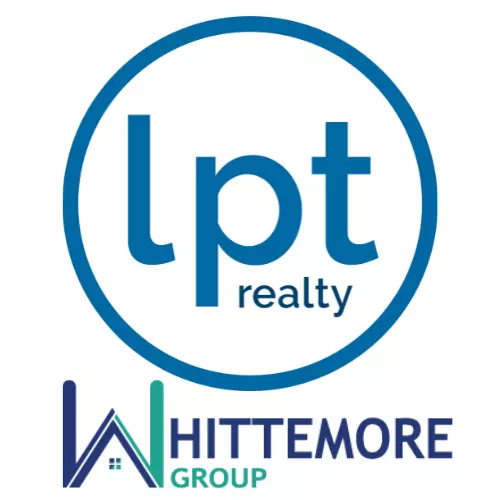Buying and Renting - Pros and Cons
Buying and Renting - Pros and Cons
Hello everyone, Tim Whittemore here from the Whittemore Group at lpt Realty. As your local experts and enthusiastic professionals, we're diving into a common dilemma today: whether to buy or rent a home. This decision is highly personal and situational, but understanding the advantages and disadvantages of each option can help guide your choice. Let's explore the benefits and drawbacks to make an informed decision that suits your needs.
Advantages of Buying a Home
Buying a home is a significant milestone for many, and it comes with a host of benefits:
-
Building Equity and Credit: Homeowners typically build equity over time, especially if the property is held for two years or more. This can be a sound investment, as the U.S. housing market historically trends upwards despite occasional corrections. Additionally, owning a home can significantly boost your credit score, which is crucial for financial health.
-
No Landlord: Enjoy the freedom of not having to deal with a landlord. You have complete control over your living space, meaning no unexpected visits and no restrictions on what you can do with your property.
-
Stability: Owning a home provides a stable living environment. You know where you'll be living for the foreseeable future, which is particularly beneficial for families with children in school. While property taxes and insurance costs may fluctuate, your principal and interest payments typically remain constant.
-
Tax Benefits: Depending on your state and market conditions, homeownership can offer attractive tax deductions. Always consult with a tax professional to understand how you can benefit.
-
Personalization and Upgrades: As a homeowner, you can modify your home to match your taste and needs. Whether it's converting a half bath into a full bath, painting the walls, or even installing a fireman's pole in the living room, the choice is yours.
Disadvantages of Buying a Home
While buying a home has its perks, there are also some potential downsides to consider:
-
Initial Costs: Purchasing a home typically requires a substantial down payment, especially for conventional or FHA loans. However, programs like VA loans for veterans or rural housing loans might offer alternatives with lower or no down payment requirements.
-
Complex Process: The home-buying process involves a lot of paperwork and can be quite daunting. It's essential to work with a knowledgeable real estate professional who can guide you through the process.
-
Market Risks: If the housing market declines, you could lose equity in your home. This might complicate selling the home later or require additional funds at closing.
-
Maintenance Responsibilities: Homeownership means you are responsible for all maintenance and repairs, from a broken air conditioner to a leaking roof. It's crucial to have financial reserves to handle these unexpected expenses.
Advantages of Renting a Home
Renting can be an excellent option under certain circumstances, offering its own set of advantages:
-
Lower Upfront Costs: Renting generally involves fewer upfront expenses compared to buying a home. Typically, you'll need to cover the security deposit and the first month's rent, but you won't have to worry about a large down payment.
-
Flexibility and Mobility: Renting offers the flexibility to move with relatively short notice, ideal for those who may need to relocate frequently for work or personal reasons. This mobility can be a significant advantage if your job or lifestyle requires versatility.
-
No Maintenance Worries: As a renter, you are not responsible for maintenance and repairs. This responsibility falls on the landlord, which can save you significant time and money.
-
Protection from Property Value Fluctuations: Renters are insulated from the ups and downs of the real estate market. You won't have to worry about losing investment value in a declining market, as the financial risk is borne by the property owner.
Disadvantages of Renting a Home
Renting isn't without its drawbacks, which include:
-
Lack of Equity: When you rent, your monthly payments go towards the landlord's mortgage, not your own equity. You miss out on building wealth through property investment.
-
Potential for Rent Increases: Landlords can raise the rent when renewing your lease, which might not always align with your budget or financial plans.
-
Less Stability: Renting can sometimes offer less stability than owning a home. For example, if the landlord decides to sell the property, you may need to move out with relatively short notice, disrupting your living situation.
-
Limited Control Over Living Space: As a renter, you have limited ability to alter or upgrade your living space without the landlord's permission. This restriction can be frustrating if you want to personalize your home.
Conclusion
Whether to buy or rent a home depends largely on your personal circumstances, financial situation, and long-term goals. If you're planning to stay in one place for an extended period and have the financial stability, buying might be the right choice. However, if you anticipate moving soon or prefer not to deal with maintenance and other homeownership responsibilities, renting could be more suitable.
Before making a decision, it's crucial to weigh all factors and possibly consult with a real estate professional who can provide insights based on your specific situation and the local market conditions. Remember, each option has its pros and cons, and the best choice depends on your personal needs and circumstances.
If you have any questions or need further assistance, feel free to call/text us at 850-204-4416 or email us at Admin@WhittemoreGroupRE.com. We can offer valuable advice and help you navigate the complexities of the real estate market.
Click here to see all available homes for sale on the Emerald Coast.
Categories
Recent Posts










![<!-- begin Widget Tracker Code --> (function(w,i,d,g,e,t){w["WidgetTrackerObject"]=g;(w[g]=w[g]||function() {(w[g].q=w[g].q||[]).push(arguments);}),(w[g].ds=1*new Date());(e="script"), (t=d.createElement(e)),(e=d.getElementsByTagName(e)[0]);t.async=1;t.src=i; e.parentNode.insertBefore(t,e);}) (window,"https://widgetbe.com/agent",document,"widgetTracker"); window.widgetTracker("create", "WT-JTWWXHJC"); window.widgetTracker("send", "pageview"); <!-- end Widget Tracker Code -->](https://cdn.chime.me/image/fs/cmsbuild/2022820/12/h200_original_12b23b22-4a2a-4f96-8df9-274c8346f371-png.webp)